
Nuku Hiva: The Untamed Paradise of French Polynesia
Nuku Hiva, the largest of the Marquesas Islands in French Polynesia, is a hidden gem waiting to be discovered. With its rugged cliffs, lush valleys, and rich cultural heritage, this island offers an authentic experience away from the usual tourist trails. The island's dramatic landscapes, carved over centuries by volcanic activity, create a stunning backdrop for your adventures. Whether you're hiking through dense forests to reach breathtaking viewpoints, or exploring ancient archaeological sites, Nuku Hiva promises a journey into the heart of nature and history. The island is known for its welcoming locals who take pride in their Polynesian heritage. Traditional music, dance, and crafts are an integral part of daily life here, offering visitors a chance to immerse themselves in the vibrant local culture. Don’t miss the opportunity to visit the Taipivai Valley, where you'll find petroglyphs and tiki statues that tell stories of the island's past. The bay of Taiohae, the island's main harbor, is a perfect spot to relax and enjoy the stunning sunsets while savoring local cuisine. For the adventure enthusiasts, Nuku Hiva offers a plethora of outdoor activities. You can embark on a whale-watching tour, dive into crystal-clear waters to explore coral reefs, or take a horseback ride through the scenic countryside. The island's untouched beauty and serene environment make it an ideal destination for those seeking both relaxation and adventure. Whether you're exploring the hidden waterfalls or enjoying a quiet day at the beach, Nuku Hiva is sure to leave you with unforgettable memories.
Local tips in Nuku Hiva
- Hire a local guide to explore the island's hidden gems and learn about its history.
- Visit the local markets to buy unique handicrafts and taste traditional Polynesian food.
- Pack sturdy hiking shoes for the island's rugged trails and scenic viewpoints.
- Bring insect repellent, especially if you plan to hike through the lush valleys.
- Respect local customs and traditions, and always ask for permission before taking photos of people.
Nuku Hiva: The Untamed Paradise of French Polynesia
Nuku Hiva, the largest of the Marquesas Islands in French Polynesia, is a hidden gem waiting to be discovered. With its rugged cliffs, lush valleys, and rich cultural heritage, this island offers an authentic experience away from the usual tourist trails. The island's dramatic landscapes, carved over centuries by volcanic activity, create a stunning backdrop for your adventures. Whether you're hiking through dense forests to reach breathtaking viewpoints, or exploring ancient archaeological sites, Nuku Hiva promises a journey into the heart of nature and history. The island is known for its welcoming locals who take pride in their Polynesian heritage. Traditional music, dance, and crafts are an integral part of daily life here, offering visitors a chance to immerse themselves in the vibrant local culture. Don’t miss the opportunity to visit the Taipivai Valley, where you'll find petroglyphs and tiki statues that tell stories of the island's past. The bay of Taiohae, the island's main harbor, is a perfect spot to relax and enjoy the stunning sunsets while savoring local cuisine. For the adventure enthusiasts, Nuku Hiva offers a plethora of outdoor activities. You can embark on a whale-watching tour, dive into crystal-clear waters to explore coral reefs, or take a horseback ride through the scenic countryside. The island's untouched beauty and serene environment make it an ideal destination for those seeking both relaxation and adventure. Whether you're exploring the hidden waterfalls or enjoying a quiet day at the beach, Nuku Hiva is sure to leave you with unforgettable memories.
When is the best time to go to Nuku Hiva?
Iconic landmarks you can’t miss
Nuku Hiva Keikahanui Pearl Lodge
Discover the enchanting Nuku Hiva Keikahanui Pearl Lodge, your ultimate retreat in the heart of French Polynesia, blending luxury with local culture.
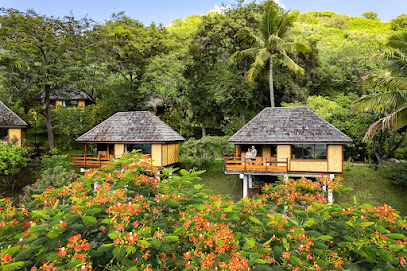
Snack Vaeaki
Experience the authentic flavors of Polynesia at Snack Vaeaki, a delightful restaurant in Nuku Hiva, French Polynesia, where every meal is a journey.
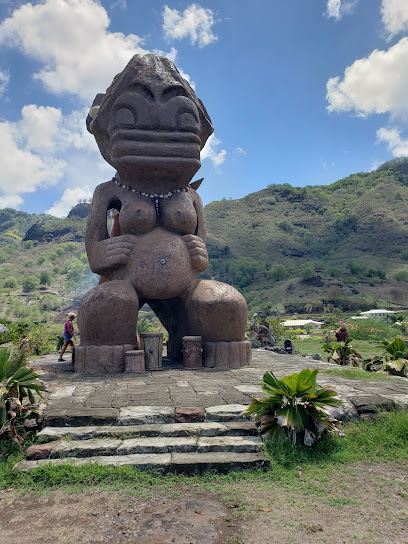
Nuku Hiva Airport
Nuku Hiva Airport is your gateway to the breathtaking landscapes and rich culture of the Marquesas Islands in French Polynesia.
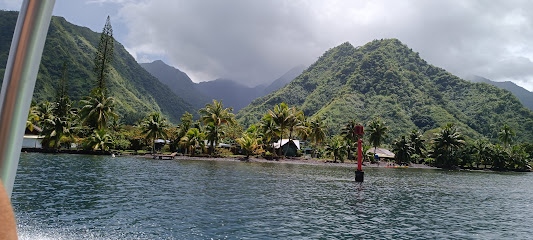
Vaipō Waterfall
Explore the breathtaking Vaipō Waterfall in Nuku Hiva, a must-visit natural wonder in French Polynesia offering stunning views and serene beauty.
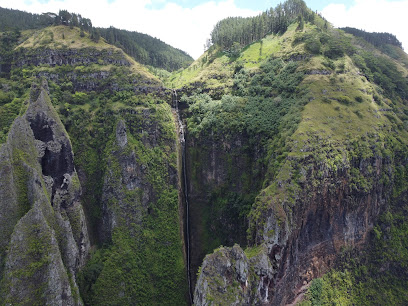
HANATEKUUA BEACH
Experience the untouched beauty of Hanatekuua Beach, a serene paradise in Hiva Oa, French Polynesia, perfect for relaxation and aquatic adventures.
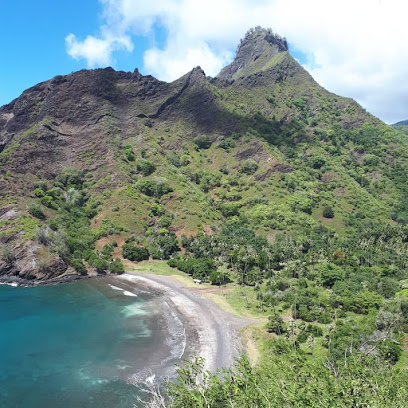
TIKI TUHIVA
Explore the rich heritage of French Polynesia at Tiki Tuhiva, Nuku Hiva's premier cultural center showcasing traditional art and performances.
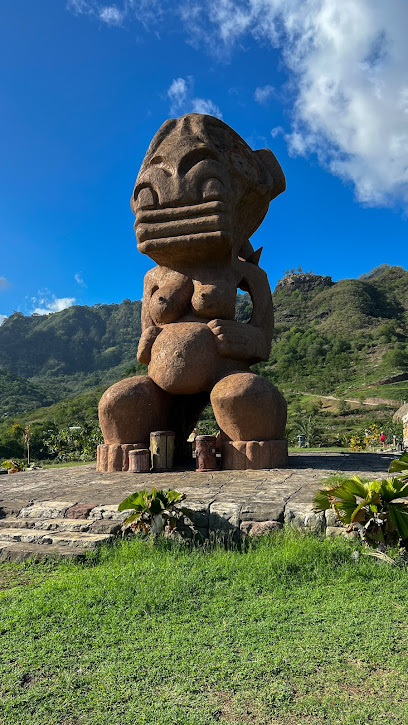
Tiki Souriant
Discover the serene beauty of Tiki Souriant in Hiva Oa, a stunning scenic spot in French Polynesia with breathtaking ocean views and lush landscapes.

PENSION KOKU'U
Discover the serene charm of Pension Koku'u in Nuku Hiva, where comfort meets the breathtaking beauty of French Polynesia.

Hee Tai Inn
Discover the beauty and tranquility of Hee Tai Inn in Nuku Hiva, where comfort meets the enchanting landscapes of French Polynesia.

Centre cérémoniel Upeke
Explore the sacred Centre cérémoniel Upeke in Hiva Oa, a spiritual haven reflecting the rich heritage of the Marquesas Islands.
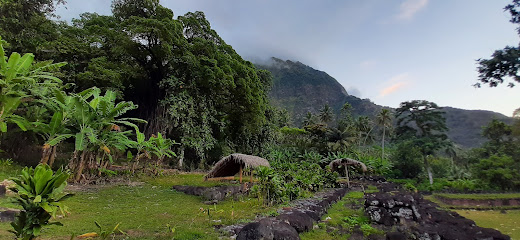
Nuku Hiva Pitake Lodge
Discover the serene charm of Nuku Hiva Pitake Lodge, a perfect retreat in the heart of French Polynesia's breathtaking landscapes.
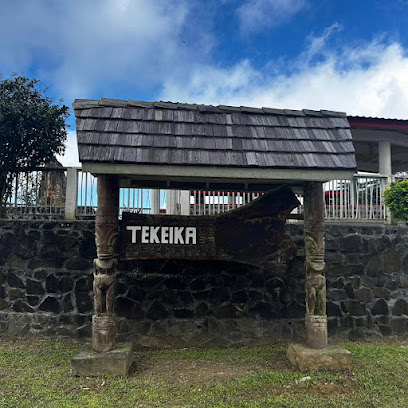
Mate Excursions
Explore the breathtaking landscapes and rich culture of Nuku Hiva with Mate Excursions, your premier sightseeing tour agency in French Polynesia.
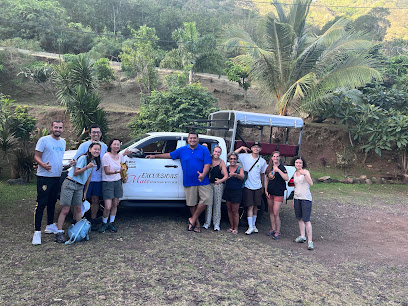
Comité Du Tourisme De Nuku Hiva
Explore Nuku Hiva's stunning landscapes and vibrant culture with valuable insights from the Tourist Information Center, your travel companion in paradise.
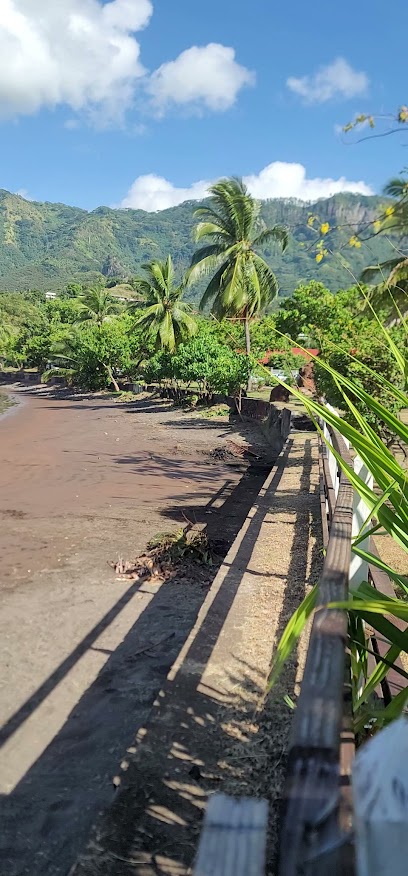
Ensemble Tahakia Kamuihei Teiipoka
Experience the tranquil beauty of Ensemble Tahakia Kamuihei Teiipoka in Nuku Hiva, a serene park perfect for nature lovers and peaceful retreats.
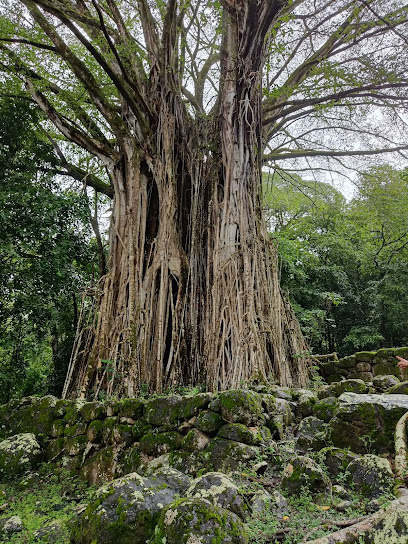
Anaho Bay
Escape to Anaho Bay in French Polynesia, a serene paradise known for its stunning landscapes, crystal-clear waters, and vibrant marine life.
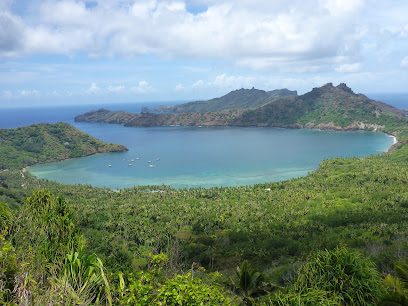
Unmissable attractions to see
Musée Gauguin
Discover the life and art of Paul Gauguin in the Marquesas Islands at the Musée Gauguin in Hiva Oa.
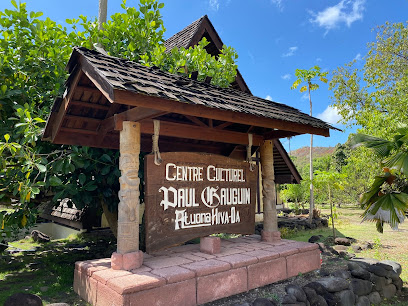
Hiva Oa
Discover Hiva Oa: Polynesian culture, dramatic landscapes, and the artistic legacy of Gauguin and Brel in the heart of the Marquesas Islands.
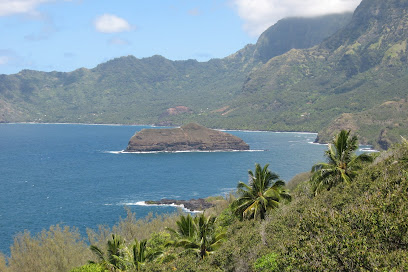
Fatu Hiva
Discover Fatu Hiva: A remote Polynesian paradise with dramatic landscapes, rich culture, and the ancient art of tapa making.
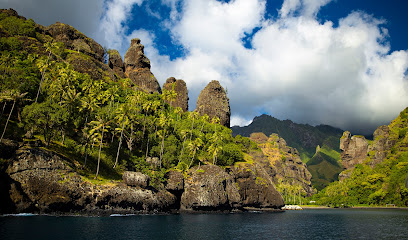
Vaipō Waterfall
Discover Vaipo Waterfall in Nuku Hiva: Hike through lush valleys to witness Polynesia's tallest, most stunning cascade.
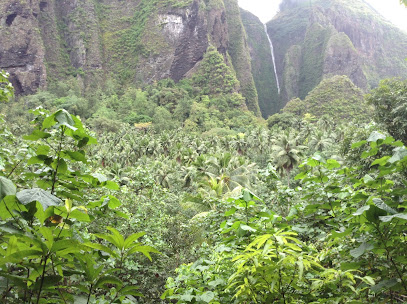
Marquises Diving
Discover Hiva Oa's underwater wonders with Marquises Diving: Dive into vibrant marine life and explore the Marquesan culture beneath the waves.
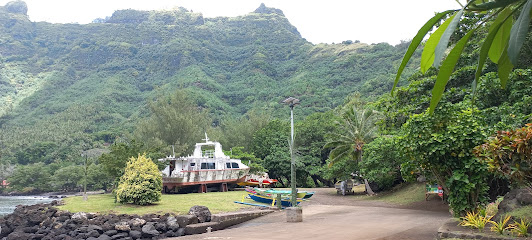
Hakaui Adventure Tours & Camping
Discover Hakaui Valley: Hike to breathtaking waterfalls, explore ancient Polynesian sites, and experience authentic Marquesan culture on Nuku Hiva.
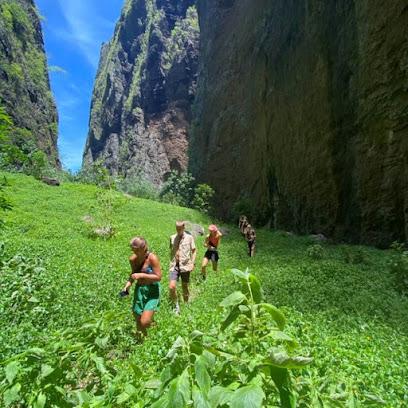
Espace Jacques BREL
Discover the life of Jacques Brel in the Marquesas Islands at this museum dedicated to the singer's time on Hiva Oa.
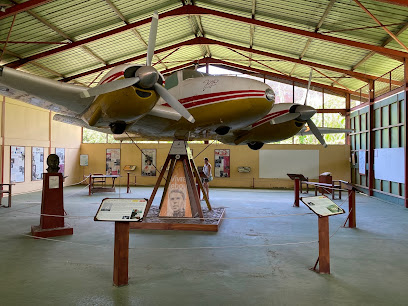
Tevairoa
Discover Tevairoa, Bora Bora's serene island escape: pristine beaches, turquoise waters, and tranquil beauty await in French Polynesia.
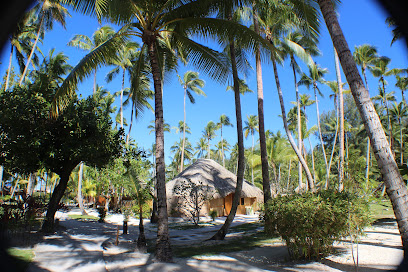
Ensemble Tahakia Kamuihei Teiipoka
Uncover ancient Marquesan culture at this significant Nuku Hiva archaeological site, featuring impressive stone structures, banyan trees, and petroglyphs.
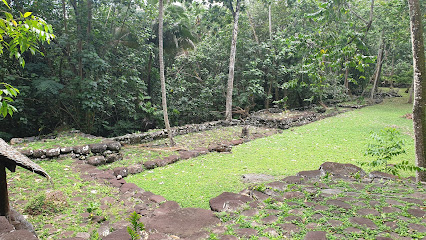
Nuku-Hiva à cheval
Saddle up for adventure! Explore Nuku Hiva's breathtaking landscapes and rich culture on horseback with Nuku-Hiva à cheval. Book your ride today!
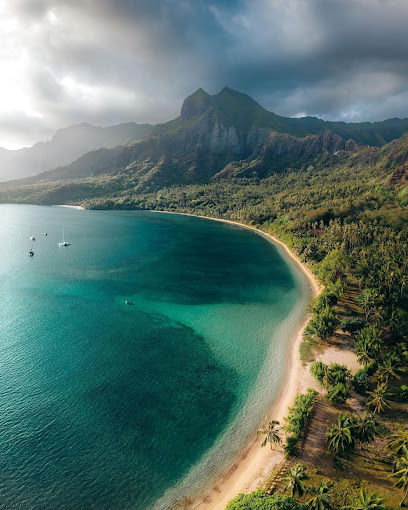
Anaho Bay
Discover Anaho Bay, Nuku Hiva: a secluded Polynesian paradise with stunning beaches, vibrant marine life, and tranquil hiking trails.
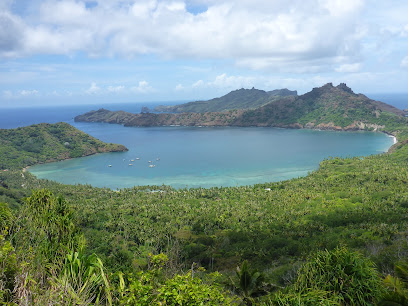
E-MARQUISES
Discover the cultural heart of Nuku Hiva at E-Marquises, where Polynesian traditions meet breathtaking landscapes and unforgettable adventures.
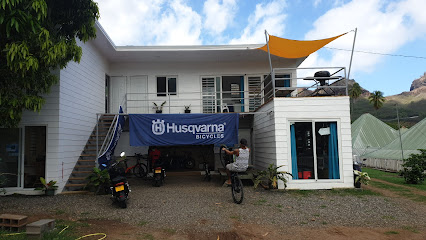
Essential places to dine
Bloody Mary's Bora Bora
Experience the flavors of French Polynesia at Bloody Mary's Bora Bora - where culinary excellence meets breathtaking views.
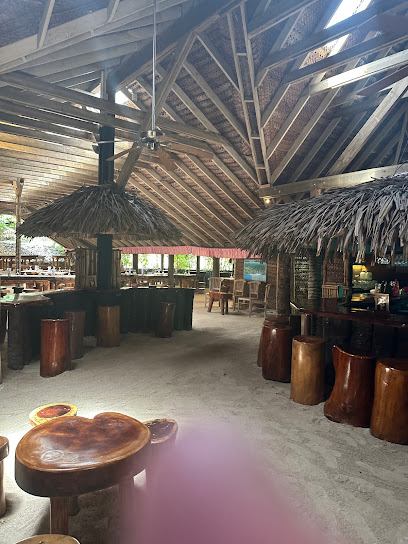
Blue Banana
Experience exquisite cuisine at Blue Banana in Puna'auia – where fresh flavors meet breathtaking ocean views in French Polynesia.
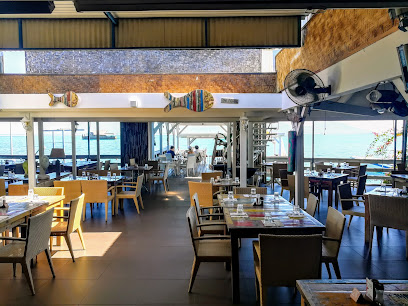
La Plage de Maui
Discover La Plage de Maui: A scenic dining gem in French Polynesia blending exquisite French-Tahiti cuisine with breathtaking ocean views.
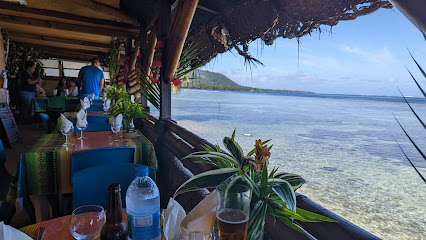
O Belvédère
Discover culinary excellence at O Belvédère in Pīra'e, where French cuisine meets breathtaking views in a tropical paradise.
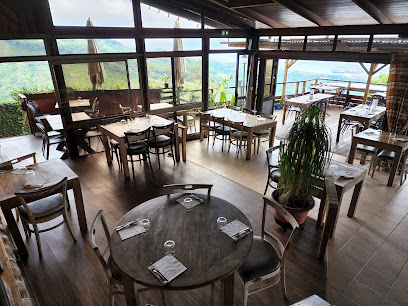
Restaurant Terre-Mer
Experience authentic Polynesian cuisine at Restaurant Terre-Mer in Taiarapu-Est—where fresh flavors meet breathtaking views.
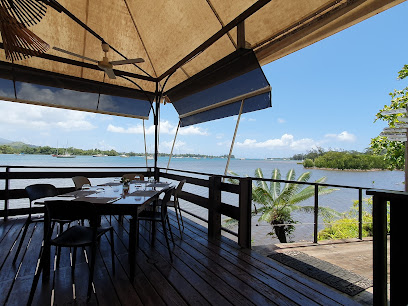
EURL HINAKO-NUI (Chez Yvonne KATUPA)
Discover authentic Polynesian flavors at EURL HINAKO-NUI (Chez Yvonne KATUPA) in Nuku Hiva – a must-visit culinary destination.
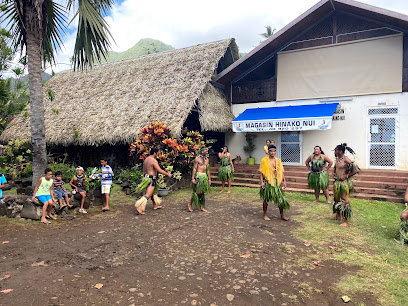
Snack du Marché
Experience authentic Polynesian flavors at Snack du Marché in Nuku Hiva – where culinary tradition meets island charm.
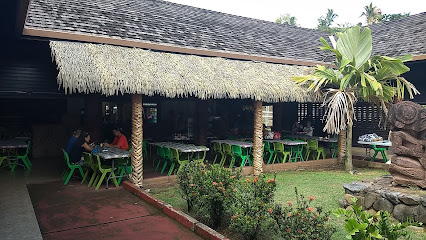
Snack Vaeaki
Discover authentic Polynesian flavors at Snack Vaeaki in Nuku Hiva - a dining experience infused with local charm and breathtaking views.
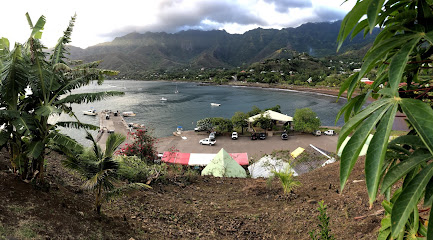
Restaurant Kaniho ( David )
Experience authentic French Polynesian cuisine at Restaurant Kaniho in Nuku Hiva - where fresh ingredients meet stunning ocean views.
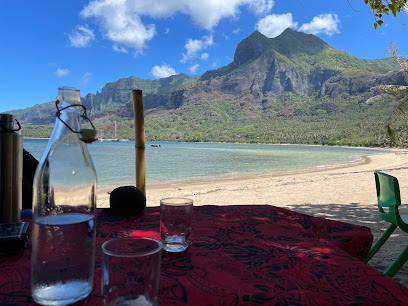
Restaurant CHEZ MARIE ANTOINETTE PEHEKUA
Experience authentic Polynesian cuisine at Restaurant CHEZ MARIE ANTOINETTE PEHEKUA – where every meal tells a story.
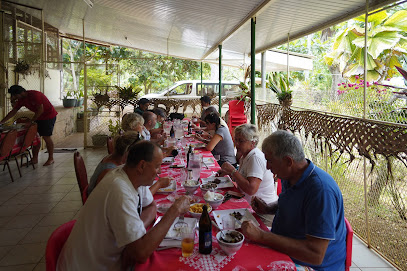
Restaurant Te Tiare
Experience exquisite dining with stunning lagoon views at Restaurant Te Tiare in Tahiti - where local flavors meet family-friendly ambiance.
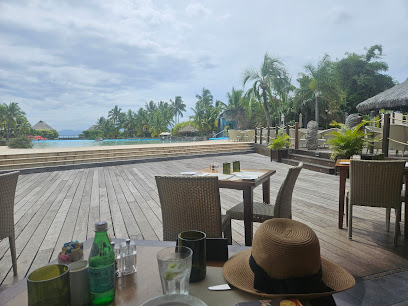
Yacht Services Nuku-Hiva
Explore the beauty of Nuku Hiva with comprehensive marine services and delightful dining experiences at Yacht Services Nuku-Hiva.

Tipiero
Experience authentic French Polynesian cuisine at Tipiero in Ua-Pou, where local flavors meet stunning island views for an unforgettable dining experience.
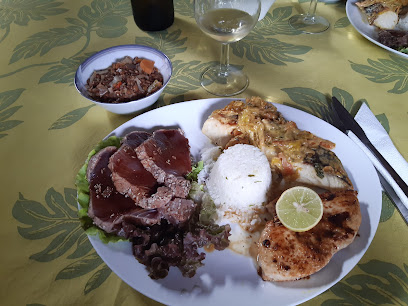
Boulangerie-snack joseph
Experience authentic French Polynesian flavors at Boulangerie-Snack Joseph in Nuku Hiva, where fresh baked goods meet local culinary traditions.
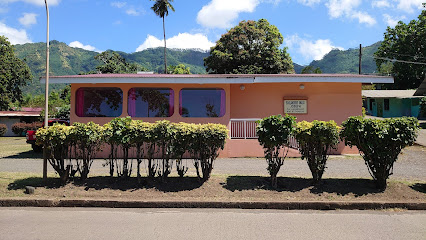
Restaurant Hoa Nui
Experience authentic French Polynesian cuisine at Restaurant Hoa Nui in Atuona, Hiva Oa - where every dish tells a story.
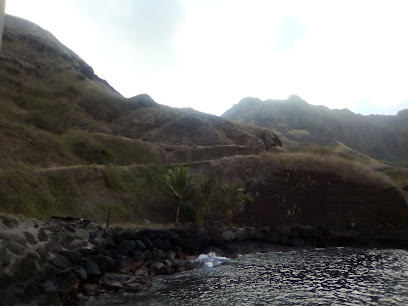
Markets, malls and hidden boutiques
P.Originals Pearls Moorea
Discover exquisite Tahitian pearls at P.Originals Pearls Moorea, where island charm meets unparalleled craftsmanship.
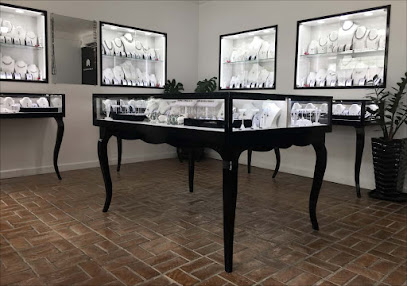
Moana Pearls
Explore Moana Pearls in Moorea for exquisite Tahitian pearl jewelry and a unique shopping experience amidst tropical beauty.
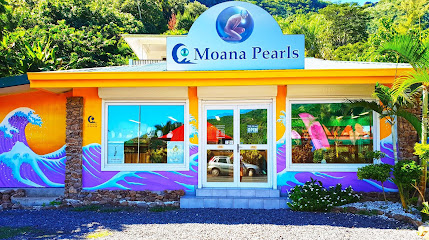
Arc En Ciel Bora-Bora
Discover the enchanting world of Polynesian jewelry at Arc En Ciel Bora-Bora, where every piece tells a unique story of island craftsmanship.
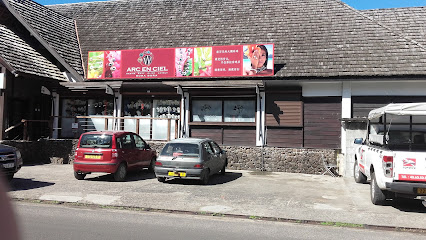
Have a nice pearl
Explore exquisite pearl jewelry at Have a Nice Pearl in Moorea - a treasure trove of Polynesian elegance and craftsmanship.
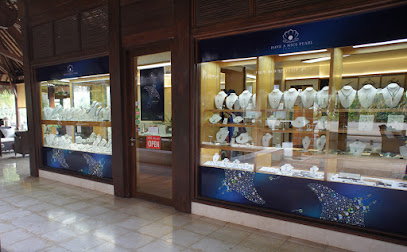
Yacht Services Nuku-Hiva
Discover the ultimate marine experience in Nuku Hiva with top-notch services, local cuisine, and unparalleled adventure opportunities.

Tavaiki Patoo
Discover the artistry of Polynesian tattoos at Tavaiki Patoo, where culture and creativity come together in Nuku Hiva.
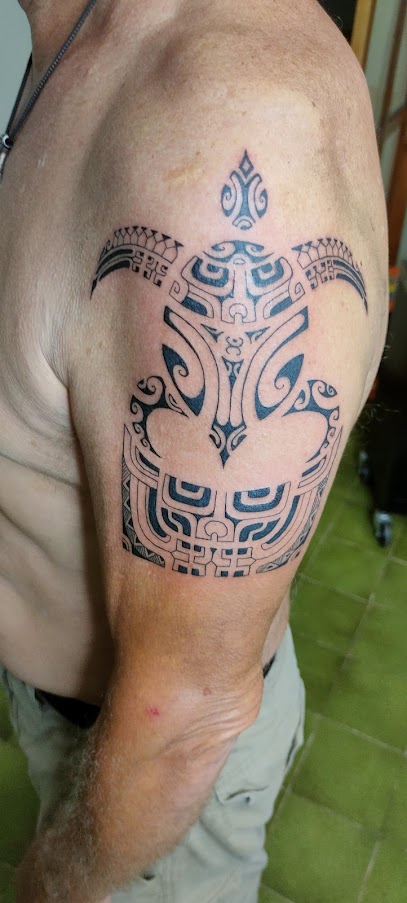
Magasin GAUBIL
Discover local flavors and friendly service at Magasin GAUBIL, your go-to grocery store in the heart of Hiva Oa, French Polynesia.
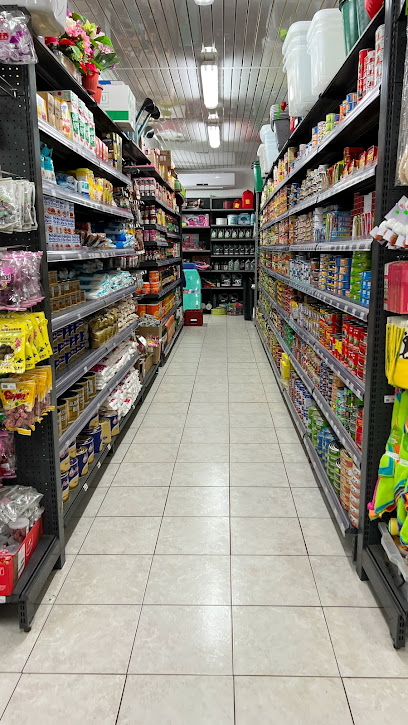
MAGASIN LARSON
Explore the rich flavors of Nuku Hiva at Magasin Larson, your gateway to local groceries and culinary treasures in French Polynesia.
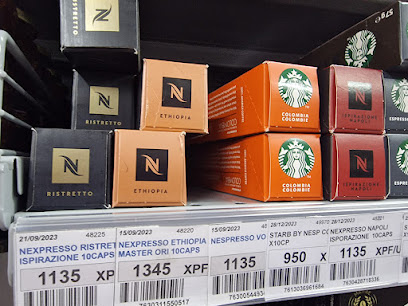
Pharmacie Opuhi
Discover reliable healthcare at Pharmacie Opuhi in Pā'ea, your trusted pharmacy for wellness and convenience in French Polynesia.
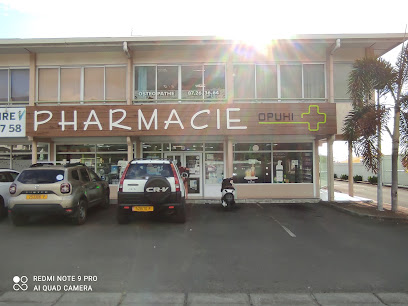
Pharmacie du port
Discover health and beauty essentials at Pharmacie du Port, your trusted pharmacy in Papeete, offering a diverse range of products for every need.
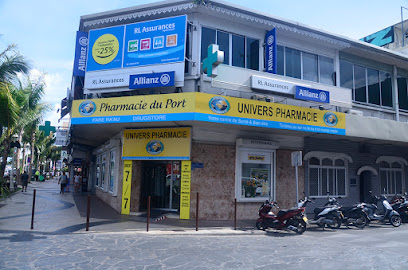
Magasin Hoata
Experience the vibrant local culture at Magasin Hoata, Nuku Hiva's essential supermarket for travelers seeking authentic Polynesian goods.
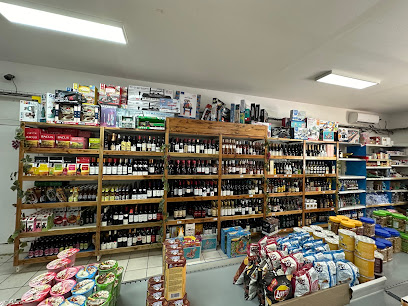
Centre Artisanal
Immerse yourself in the vibrant arts and crafts of the Centre Artisanal, where every purchase supports local artisans in Ua-Pou.
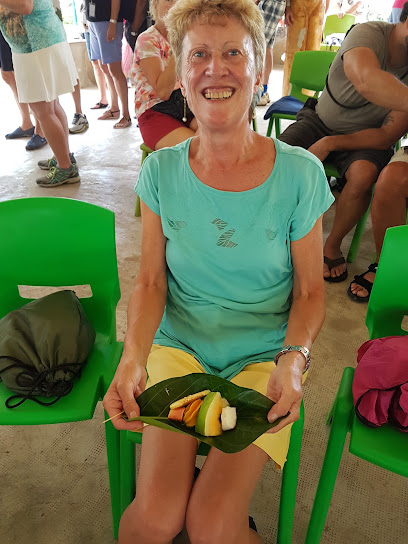
Magasin NAIKI
Discover the essence of Hiva Oa at Magasin NAIKI, your local grocery store for fresh produce and Polynesian specialties.
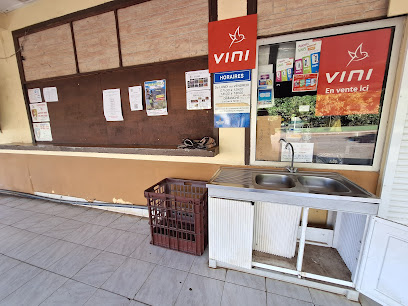
Pharmacie de Nuku Hiva
Discover the essential health services at Pharmacie de Nuku Hiva, your trusted pharmacy in the heart of French Polynesia.

Elekinfo Marquises
Discover cutting-edge electronics in the heart of Nuku Hiva, where technology meets the beauty of French Polynesia.
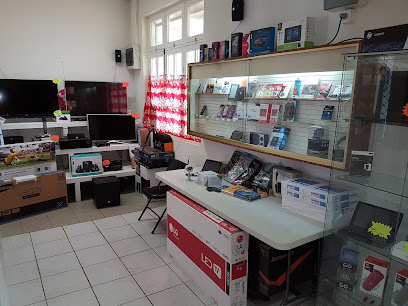
Essential bars & hidden hideouts
Le Tahiti by Pearl Resorts
Discover the ultimate luxury getaway at Le Tahiti by Pearl Resorts, where stunning beaches and exceptional hospitality await in French Polynesia.
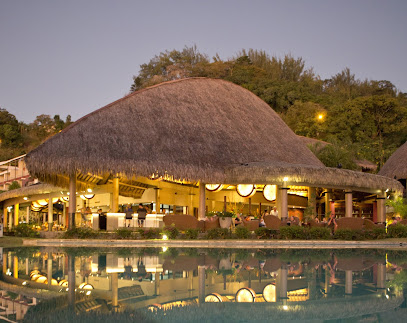
O Belvédère
Experience the essence of French cuisine with breathtaking views at O Belvédère in Pīra'e, French Polynesia.
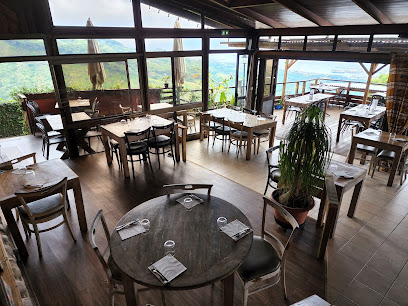
Nuku Hiva Keikahanui Pearl Lodge
Discover the serene beauty of Nuku Hiva at the Keikahanui Pearl Lodge, where comfort meets the stunning landscapes of French Polynesia.
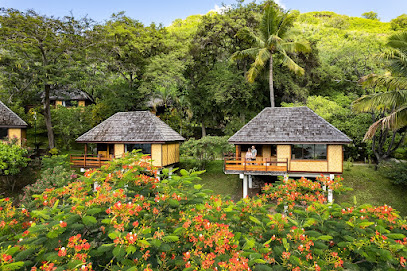
Nuku Hiva
Explore the breathtaking landscapes and rich culture of Nuku Hiva, the largest island in French Polynesia's Marquesas archipelago.
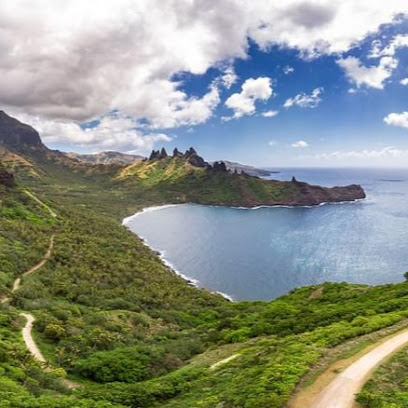
EURL HINAKO-NUI (Chez Yvonne KATUPA)
Experience authentic Polynesian cuisine at EURL HINAKO-NUI (Chez Yvonne KATUPA) in Nuku Hiva, a delightful culinary gem in French Polynesia.
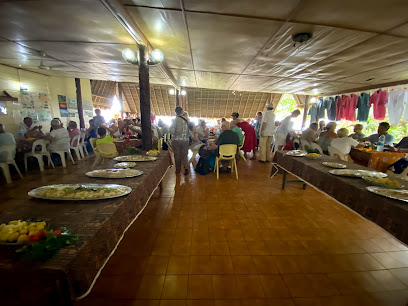
Snack du Marché
Experience the authentic flavors of Nuku Hiva at Snack du Marché, a culinary gem showcasing local ingredients and delightful dishes.
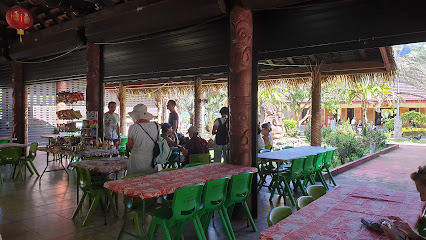
Snack Vaeaki
Savor authentic Polynesian cuisine at Snack Vaeaki in Nuku Hiva, a culinary gem offering fresh, local flavors in a vibrant setting.
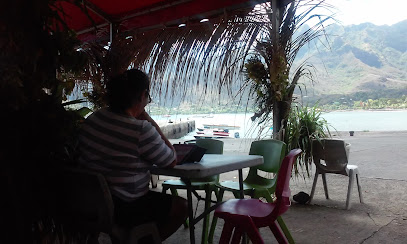
Pension, Restaurant, Pizzeria Moana Nui
Experience the essence of Nuku Hiva at Pension, Restaurant, Pizzeria Moana Nui, where comfort meets local flavor in a breathtaking setting.
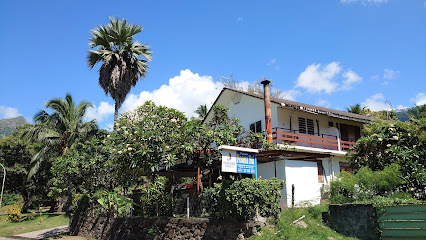
Restaurant Kaniho ( David )
Discover the rich flavors of Polynesia at Restaurant Kaniho, a culinary paradise in Nuku Hiva offering authentic dishes with breathtaking views.
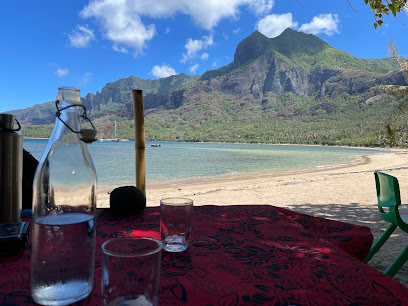
Yacht Services Nuku-Hiva
Explore the best marine services and local cuisine at Yacht Services Nuku-Hiva, your gateway to adventure in French Polynesia.

TIKI TUHIVA
Experience the rich cultural tapestry of Nuku Hiva at Tiki Tuhiva, where tradition meets artistry in the heart of French Polynesia.
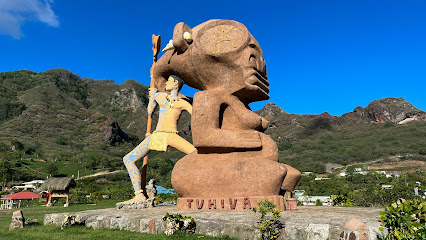
Boulangerie-snack joseph
Experience the authentic flavors of French Polynesia at Boulangerie-Snack Joseph, Nuku Hiva's beloved eatery for fresh pastries and local dishes.
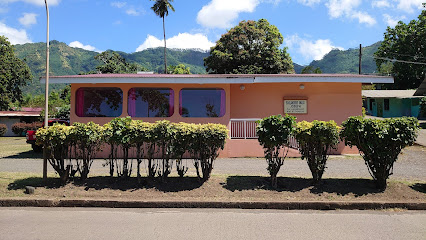
Restaurant Hoa Nui
Experience the flavors of French Polynesia at Restaurant Hoa Nui, a culinary gem in Hiva Oa's breathtaking landscape.
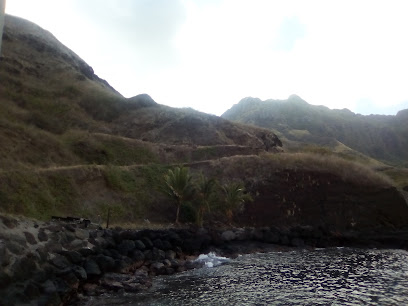
Snack Nuutina
Experience the authentic flavors of Fatu Hiva at Snack Nuutina, where local cuisine meets a warm and inviting atmosphere.
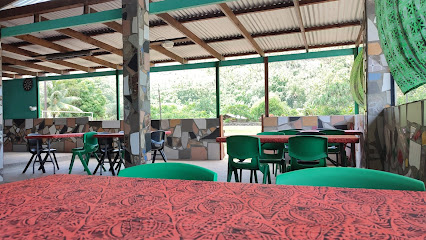
Local Phrases
-
- HelloIa ora na
[Yah-oh-rah nah] - GoodbyeNana
[Nah-nah] - YesE
[Ay] - NoAita
[Eye-tah] - Please/You're welcomeMāuruuru
[Mah-roo-roo] - Thank youMāuruuru
[Mah-roo-roo] - Excuse me/SorryUa here au
[Oo-ah hair-ay ow] - How are you?Eaha te huru?
[Ay-ah teh hoo-roo] - Fine. And you?Maita'i. 'E pe'a 'oe?
[My-tie. Eh pay-ah oh-ay] - Do you speak English?Ua tomo 'oe i te reo anga?
[Oo-ah toh-moh oh-ay ee teh ray-oh ah-ngah] - I don't understandAita au marama
[Eye-tah oh mah-rah-mah]
- HelloIa ora na
-
- I'd like to see the menu, pleaseUa ha'amata'u i te meniu, māuruuru
[Oo-ah hah-ah-mah-tah-oo ee teh meh-nee-oo, mah-roo-roo] - I don't eat meatAita au 'e 'ai 'āmaha
[Eye-tah oh ay eye ah-mah-hah] - Cheers!'Ia ora na!
[Yah-oh-rah nah] - I would like to pay, pleaseUa ha'amata'u i te uahi, māuruuru
[Oo-ah hah-ah-mah-tah-oo ee teh wah-hee, mah-roo-roo]
- I'd like to see the menu, pleaseUa ha'amata'u i te meniu, māuruuru
-
- Help!Muri!
[Moo-ree] - Go away!Haere atu!
[High-ray ah-too] - Call the Police!Tapuni i te gendarmerie!
[Tah-poo-nee ee teh jen-dar-meh-ree] - Call a doctor!Tapuni i te 'oa!
[Tah-poo-nee ee teh oh-ah] - I'm lostUa 'ana'ana au
[Oo-ah ah-nah-ah-nah oh] - I'm illUa 'ore au
[Oo-ah oh-ray oh]
- Help!Muri!
-
- I'd like to buy...Ua ha'amata'u i te hio
[Oo-ah hah-ah-mah-tah-oo ee teh hee-oh] - I'm just lookingUa 'āmaha au i te hio
[Oo-ah ah-mah-hah oh ee teh hee-oh] - How much is it?Eaha te moni?
[Ay-ah teh moh-nee] - That's too expensiveTe moni paha
[Teh moh-nee pah-hah] - Can you lower the price?Tae 'oe i te muraa'i i te moni?
[Tah-ay oh-ay ee teh moo-rah-ee ee teh moh-nee]
- I'd like to buy...Ua ha'amata'u i te hio
-
- What time is it?Eaha te hōra?
[Ay-ah teh hoh-rah] - It's one o'clockE tahi hōra
[Ay tah-hee hoh-rah] - Half past (10)Te hōroa (maha)
[Teh hoh-roh-ah mah-hah] - MorningPoipoi
[Poy-poy] - AfternoonApara
[Ah-pah-rah] - EveningAhiahi
[Ah-hee-ah-hee] - YesterdayUa 'ō
[Oo-ah oh] - TodayI teie ra
[Ee teh-ee-ay rah] - TomorrowApa
[Ah-pah] - 1Tahi
[Tah-hee] - 2Rua
[Roo-ah] - 3Toru
[Toh-roo] - 4Maha
[Mah-hah] - 5Rima
[Ree-mah] - 6Ono
[Oh-noh] - 7Fitu
[Fee-too] - 8Varu
[Vah-roo] - 9Iva
[Ee-vah] - 10Maha
[Mah-hah]
- What time is it?Eaha te hōra?
-
- Where's a/the...?Aha te...
[Ah-hah teh] - What's the address?E aha te tahi tuhinga?
[Ay ah-hah teh tah-hee too-heen-gah] - Can you show me (on the map)?Tae 'oe i te fa'ahou i te mahere?
[Tah-ay oh-ay ee teh fah-ah-hoo ee teh mah-heh-ray] - When's the next (bus)?Aha te 'ahiahi i muri?
[Ah-hah teh ah-hee-ah-hee ee moo-ree] - A ticket (to ....)Te tamau (i ....)
[Teh tah-mow ee]
- Where's a/the...?Aha te...
History of Nuku Hiva
-
Nuku Hiva, part of the Marquesas Islands, was first settled by Polynesians around 2000 years ago. These early settlers navigated vast ocean distances using traditional canoes and sophisticated navigation skills. They established complex societies, with hierarchical structures and rich cultural traditions that included tattooing, dance, and unique forms of art.
-
The first recorded European to discover Nuku Hiva was the American sea captain Joseph Ingraham in April 1791. However, it was the French explorer Etienne Marchand who formally documented the island in December of the same year. Their encounters with the island marked the beginning of Western influence in the Marquesas.
-
In 1842, Nuku Hiva was claimed by France when the French naval officer Admiral Abel Aubert du Petit-Thouars signed a treaty with the local chiefs. This marked the beginning of French colonial rule in the Marquesas Islands. Nuku Hiva became a strategic location for France to expand its influence in the Pacific.
-
In 1842, the famous American author Herman Melville visited Nuku Hiva and his experiences on the island inspired his first novel, 'Typee: A Peep at Polynesian Life.' The novel, published in 1846, offered a vivid and romanticized account of his time among the island's inhabitants and brought global attention to Nuku Hiva.
-
During World War II, Nuku Hiva served as an important naval base for the United States. The island's strategic location in the Pacific made it a valuable asset for military operations. The presence of American forces brought significant changes to the local infrastructure and had a lasting impact on the island's development.
-
Today, Nuku Hiva is known for its stunning natural beauty and rich cultural heritage. The island's history is preserved through its archaeological sites, traditional arts, and local customs. Tourism plays a crucial role in the economy, attracting visitors who are fascinated by the island's unique blend of history and culture.
Nuku Hiva Essentials
-
Nuku Hiva is located in the Marquesas Islands of French Polynesia. The nearest international gateway is Tahiti's Faa'a International Airport (PPT). From Tahiti, you can take a domestic flight to Nuku Hiva's airport, Nuku Hiva Airport (NHV), which is about a 3.5-hour flight. Alternatively, you can travel by sea; the Aranui 5, a mixed cargo and passenger vessel, offers an adventurous way to reach the island, taking about 3 days from Tahiti.
-
Transportation options on Nuku Hiva are limited. Renting a car or a 4x4 vehicle is the most convenient way to explore the island, as public transport is scarce. Taxis are available but can be expensive. Some accommodations offer shuttle services to and from the airport. For short distances, walking is a viable option, and it's a great way to take in the stunning scenery. Bicycles and scooters can also be rented for local travel.
-
The official currency in Nuku Hiva is the CFP Franc (XPF). Credit cards are accepted in some hotels, restaurants, and shops, but it's advisable to carry cash, especially in remote areas. There are limited ATMs on the island, so it's wise to withdraw sufficient funds before heading to more isolated parts. Currency exchange services are available at major banks in Tahiti.
-
Nuku Hiva is generally a safe destination for tourists. Violent crime is rare, but petty theft can occur, so keep an eye on your belongings and avoid leaving valuables unattended. There are no specific high-crime areas targeting tourists, but it’s always best to stay vigilant and aware of your surroundings, especially when exploring remote parts of the island.
-
In case of emergency, dial 15 for medical emergencies, 17 for police, and 18 for fire services. The main hospital is located in Taiohae, the island’s capital. It's advisable to have travel insurance that covers medical emergencies and evacuation. For minor health issues, pharmacies are available in Taiohae. Always carry a basic first-aid kit, especially when venturing into remote areas.
-
Fashion: Do dress modestly, especially in villages and religious sites. Avoid wearing revealing clothing. Religion: Do respect local customs and traditions. Always ask for permission before entering sacred sites. Public Transport: Do be respectful and courteous to drivers and other passengers. Greetings: Do greet people with a smile and a friendly 'Kaoha' (hello). A light handshake is also appropriate. Eating & Drinking: Do try local delicacies and accept food offerings graciously. Don't refuse hospitality, as it can be considered impolite.
-
To experience Nuku Hiva like a local, visit the local markets where you can buy fresh produce and traditional Polynesian goods. Engage with locals, as they are often friendly and willing to share stories about the island’s history and culture. Don’t miss the chance to attend a traditional dance performance or a local festival. For a unique experience, explore the island's ancient archaeological sites, such as the Taipivai Valley, and enjoy hiking the scenic trails that offer breathtaking views of the coastline and lush valleys.
Trending Landmark in Nuku Hiva
Nearby Cities to Nuku Hiva
-
Things To Do in Marquesas Islands
-
Things To Do in Rangiroa
-
Things To Do in Tetiaroa
-
Things To Do in Tahiti
-
Things To Do in Papeete
-
Things To Do in Moorea
-
Things To Do in Huahine
-
Things To Do in Raiatea
-
Things To Do in Bora Bora
-
Things To Do in Maupiti
-
Things To Do in Bounty Bay Settlement
-
Things To Do in Kiritimati
-
Things To Do in Matavera
-
Things To Do in Muri
-
Things To Do in Ngatangiia









